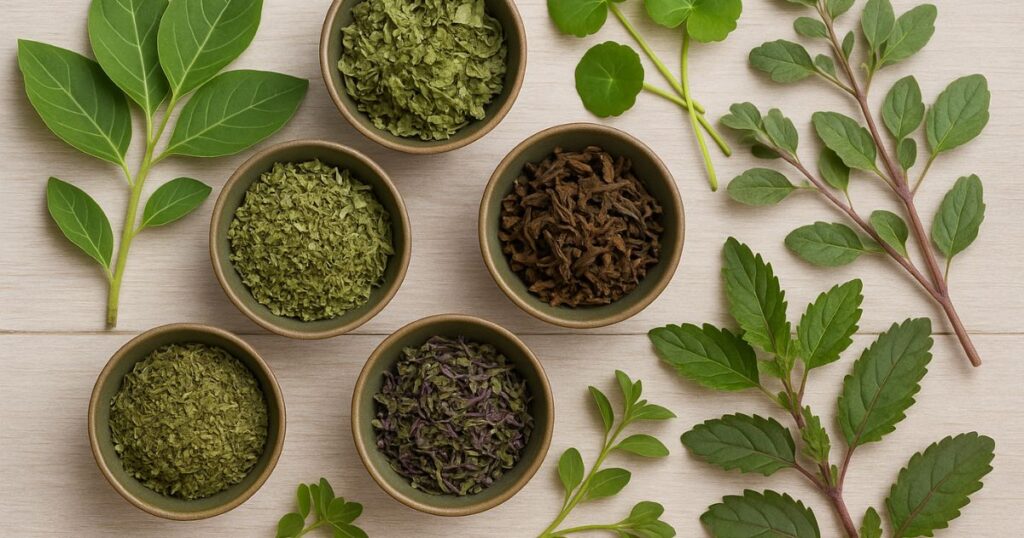As memory lapses and mental fatigue become increasingly common in a world of constant distraction, many are turning not to pharmaceuticals, but to their teacups. In India, where ancient remedies still shape modern wellness practices, five traditional herbal teas—Ashwagandha, Brahmi, Gotu Kola, Shankhpushpi, and Tulsi—are drawing renewed attention for their potential to sharpen memory and sustain cognitive clarity.
Ancient Herbs, Modern Claims
Ayurveda, India’s centuries-old system of medicine, has long described certain plants as medhya rasayanas—tonics for the mind. Now, these herbs are being repackaged in the form of teas and marketed to a generation anxious about productivity and brain power.
Ashwagandha, for instance, has been studied for its stress-reducing properties, while Brahmi is often promoted as a memory enhancer. Gotu Kola and Shankhpushpi are prescribed in traditional texts for focus and recall, and Tulsi—holy basil—has long been revered as a daily ritual in Indian households.
What Science Says
Research is beginning to probe these claims, though evidence remains uneven. A study published in PubMed Central suggested that eight weeks of Ashwagandha supplementation improved certain memory functions. Brahmi’s active compounds, bacosides, have shown potential neuroprotective effects in laboratory settings, but larger clinical trials are needed.
The U.S. Food and Drug Administration has warned manufacturers against unverified claims, underscoring the gap between traditional belief and scientific proof. Still, for many Indians, centuries of use carry their own weight of credibility.
Stress, Lifestyle, and the Brain
Part of the allure of these teas is their promise of holistic benefits. Beyond claims of sharper recall, the herbs are said to reduce cortisol, protect against oxidative stress, and regulate mood—all factors closely tied to memory.
In an age where burnout and anxiety are increasingly seen as barriers to focus, this dual role—stress relief combined with cognitive support—offers a compelling narrative.
A Complement, Not a Cure
Doctors caution against viewing these teas as quick fixes or substitutes for medical treatment. “Herbal teas can be supportive, but they’re not magic,” said one Delhi-based neurologist. “Sleep, exercise, nutrition, and mental engagement remain the pillars of brain health.”
For consumers, the safest path is moderation: sourcing herbs from trusted suppliers, consulting physicians before combining them with medication, and seeing them as part of a broader lifestyle approach rather than a stand-alone cure.
In the end, the act of sipping tea itself may be as valuable as the herbs steeped in it—forcing a pause in a hurried day, calming the mind, and perhaps, in the process, preserving memory.


